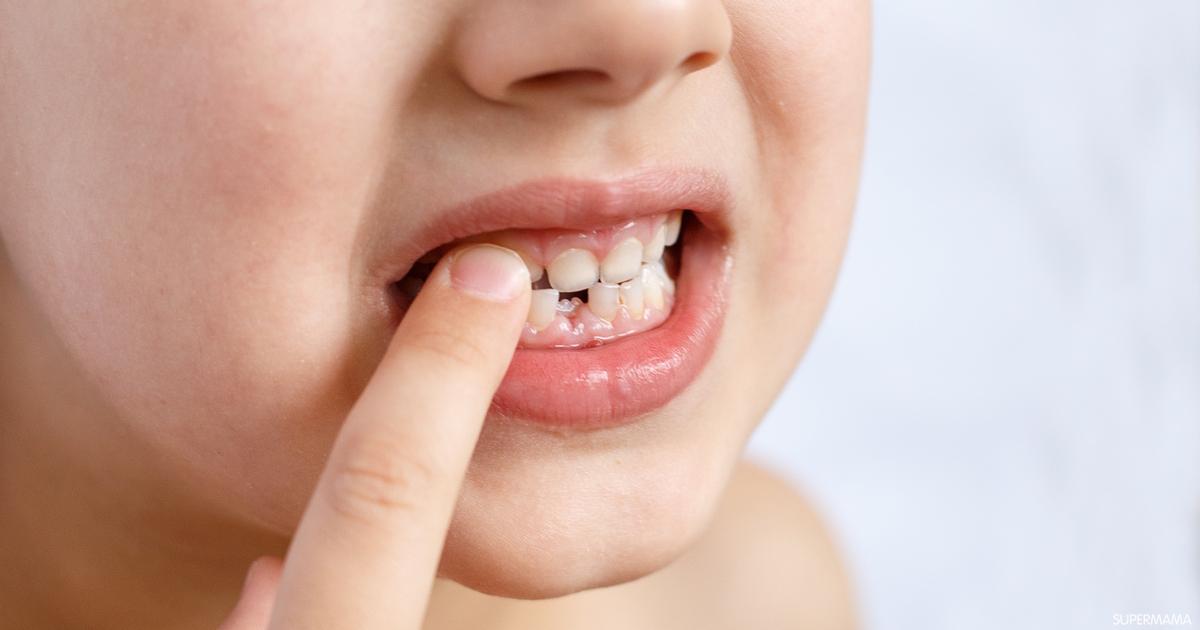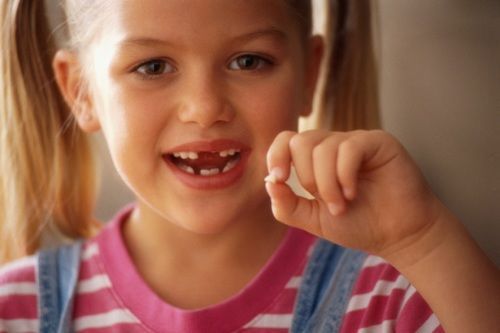Tooth Replacement in Children, One of the remarkable things that happen to all children at this age stage is the replacement of their teeth. So when should children start visiting the dentist for the first time? Can delaying the first visit affect the health of their teeth? Or not? All these questions and more will be answered in detail in the following article, in addition to a lot of distinguished and important information that we will learn, so follow us until you find what pleases you and answers all your questions.

Tooth Replacement in Children
Children tend to replace their teeth between the ages of six and eight, and by the age of 12-13, all of your child’s primary teeth will have fallen out and permanent teeth will have emerged instead, except for wisdom teeth, which are four teeth with two upper and lower teeth on each side, and they appear in the individual between the ages of 17 and 21, and in some cases, they may not appear at all, or only some of them appear in an incorrect manner and need to be extracted.
The teeth that do not replace in children are the permanent teeth that appear after the primary teeth fall out. There are 32 teeth that do not replace, and their appearance begins from the age of 6 years. These teeth cannot, under any circumstances, have a replacement except if it is an artificial or implanted replacement.
“A healthy smile starts from an early age! Book an appointment today at the Medical Center for Dental Care and ensure the health of your child’s primary teeth.”
Humans rely entirely on their permanent teeth for the rest of their lives, unlike all animals like sharks, as humans cannot replace their teeth like shark creatures that have primary teeth under the skin in large numbers. Whenever they lose a tooth, another one emerges again.
Thus, the process of tooth replacement in children usually occurs during childhood and continues until a certain age. This process occurs when new permanent teeth erupt under the primary teeth and push them up until they fall out. The timing of tooth replacement varies from child to child, but there is a general sequence for tooth replacement that mothers can refer to as follows:
After the primary teeth fall out, the permanent teeth begin to emerge gradually in the remaining empty space. Over time, all the primary teeth are replaced by the permanent teeth, which include the first permanent primary teeth and the second permanent secondary teeth. The process of complete tooth replacement can take until the age of 12-13 years. For more information on tooth eruption problems, click here.
Yes, it is possible for some permanent teeth to appear as early as 4 years old, although the appearance of permanent teeth usually occurs during childhood, starting from the age of 6 and beyond. However, there are some permanent teeth that may erupt at an early age.
For example, the permanent molars (the first grinding molars) can erupt between the ages of 4-7 years, and the second grinding molars (which come after the first grinding molars) can start appearing around the age of 11-12 years.
However, it should be noted that these dates are traditional estimates, and the timing may vary from child to child. Therefore, parents should visit the dentist to check the development of their child’s teeth and get the necessary advice on proper dental care at this age stage.
“When your 4-year-old child faces the stage of tooth replacement, monitoring them requires special attention and professionalism. The Medical Center for Dental Care provides the best therapeutic services for children, where we use modern techniques and high-quality materials to ensure the healing and restoration of their dental health.”
Yes, delayed tooth replacement in children may be normal in some cases, and there are multiple factors that can affect the timing of tooth replacement, including:
However, if there is concern about delayed tooth replacement, it is advisable to consult your dentist to assess the situation and determine if any interventions or further monitoring is needed.
Some children may experience problems during the tooth replacement process. Here are some common problems that can occur during tooth replacement:
By the age of 12 or 13, all primary teeth should have fallen out and been replaced by permanent teeth, except for wisdom teeth, which are four teeth, one in each quadrant. It is important to have regular dental check-ups, as this is the best step for accurate diagnosis and appropriate treatment of any issues related to tooth replacement.
During the tooth replacement schedule, some guidelines and instructions can be followed to handle the child and assist them during this stage. Here are some useful ways to handle the child:
The process of tooth eruption in children occurs naturally and at its appropriate timing, and the timing of eruption may vary from child to child. Therefore, we cannot accelerate the process of tooth eruption. However, there are some steps that can be taken to promote dental health and support the eruption process. Here are some tips that may help your daughter’s teeth come out faster:
The process of tooth replacement in children can be accompanied by some common symptoms, which may vary from child to child. However, there are some symptoms that may appear during the tooth replacement period, including:

No, teeth cannot be replaced twice in children. The process of tooth replacement occurs only once in a person’s life when the primary teeth fall out and are replaced by permanent teeth. After that, the permanent teeth remain in place for the rest of one’s life, except for any tooth loss resulting from causes such as injury or decay.
It is important to monitor the development of your child’s teeth and ensure that they are replacing properly and at the appropriate time. If you have any concerns about the development of your child’s teeth, it is best to consult their dentist for an evaluation and appropriate advice.
To maintain the health of permanent teeth, a set of healthy habits and practices can be followed. Here are some important ways to maintain the health of permanent teeth:
Remember that good dental care includes caring for the gums and tongue as well. Just follow these basic preventive measures and make sure to share these healthy habits with other family members to promote dental health for everyone.
How to relieve the pain of teething in children, The teething stage is a challenge for children, causing them a lot of severe pain and discomfort. In this
How to Protect Your Child’s Teeth from Cavities, You can maintain your child’s dental health and protect their teeth from cavities through good
How to relieve tooth pain in children, Children’s sensitivity to tooth pain varies and requires special care. To alleviate the pain resulting from